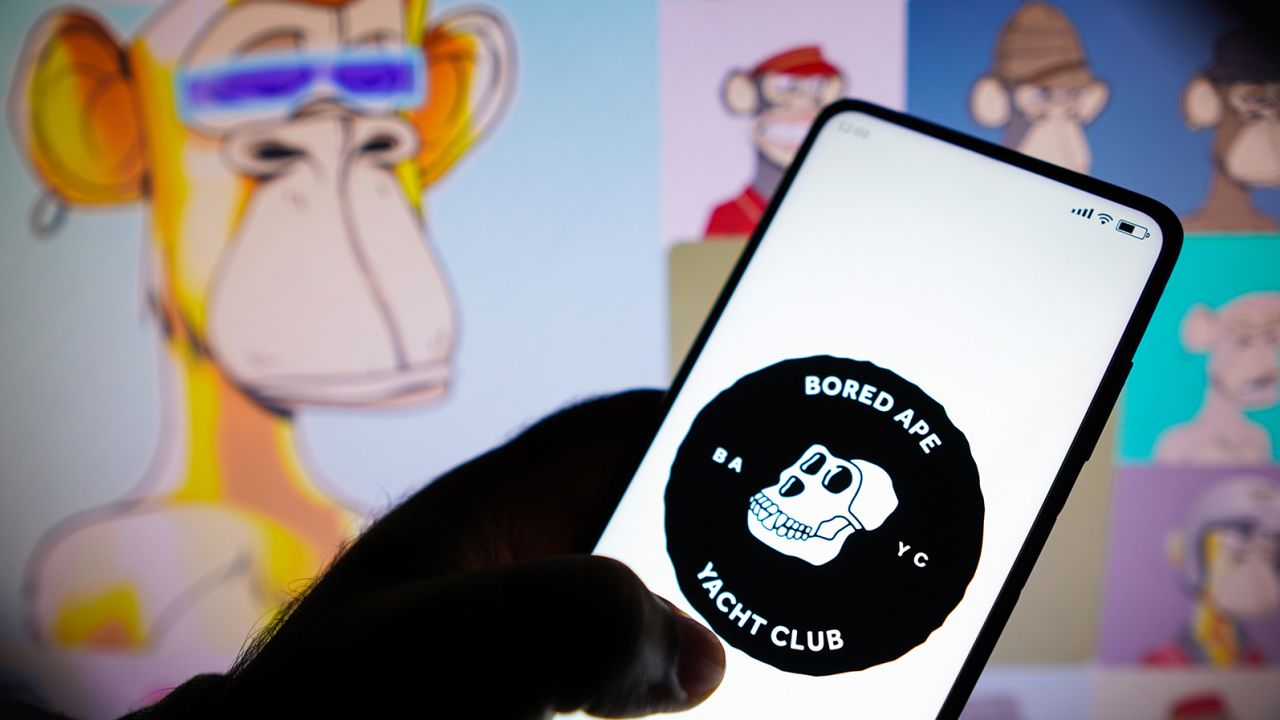18/08/2023 ‘Bored Apes’ investors sue Sotheby’s, Paris Hilton and others as NFT prices collapse

A group of investors is suing Sotheby’s Holdings Inc. and others over a 2021 auction and promotion of Bored Ape Yacht Clubnon-fungible tokens(NFTs) following a collapse in prices for the celebrity-endorsed collectibles.
The four named plaintiffs in the class action lawsuit allege that the auction house “misleadingly promoted” the NFTs and colluded with creator Yuga Labs to artificially inflate their prices.
Sotheby’s is among 30 defendants named in the lawsuit, with celebrities like Justin Bieber and Paris Hilton also accused of promoting the NFT collection without disclosing their financial links to it.
According to cryptocurrency market trackerCoinGecko, the colorful digital illustrations of apes can now be bought for as little as $52,445. As recently as May 2022, the cheapest would have cost collectors over $400,000.
In September 2021, Sotheby’s soldover 100of the NFTs to a single buyer in an online auction for more than $24 million, beating the pre-sale estimate of $12 million to $18 million.
The amended lawsuit, which was originally filed in December without naming Sotheby’s as a defendant, claims the sale was “deceptive” and that the auction house had been hired by blockchain company Yuga Labs to “generate investors’ interest and hype around the Bored Ape brand.”
“Sotheby’s representations that the undisclosed buyer was a ‘traditional’ collector had misleadingly created the impression that the market for (Bored Ape Yacht Club) NFTs had crossed over to a mainstream audience,” the plaintiffs’ legal team added in a complaint filed in a federal court in California earlier this month.
In a statement emailed to CNN, the auction house said: “The allegations in this suit are baseless, and Sotheby’s is prepared to vigorously defend itself.”
Representatives for Paris Hilton, whom the lawsuit accuses of having “feigned interest” in the NFTs for financial gain, and Justin Bieber did not respond to CNN’s requests for comment.
A spokesperson for Yuga Labs meanwhile said, via email: “We believe that these new allegations, like those in the previous iteration of this opportunistic complaint, are completely without merit or factual basis.
“As a media and technology company, Yuga Labs has empowered strong communities of enthusiasts and entrepreneurs to innovate, connect, and build. Their creativity has fostered community-driven projects that have captured the imagination of people around the world. That’s the story worth telling.”
The investors — a term that Yuga Labs’ spokesperson rejected, instead calling them “alleged purchasers of our products” — are seeking a jury trial and have requested more than $5 million in damages.
Market in freefall
NFTs are used to transform works of art and other digital collectibles into one-of-a-kind, verifiable assets that can be traded via blockchains.
Prices soared in 2021, with an NFT of Twitter founder Jack Dorsey’s first ever tweet selling for $2.9 million, a video clip of LeBron James making a slam dunk fetching over $200,000 and a “Nyan Cat” GIF going for $600,000. The first virtual NFT artwork to sell at a major auction house, “Everydays: The First 5000 Days” by a digital artist who goes by “Beeple,” fetcheda record $69 millionat Sotheby’s rival, Christie’s.
The Bored Ape Yacht Club, a collection of 10,000 NFTs hosted on the Ethereum blockchain, launched in April 2021. The images feature cartoon apes with computer-generated features and accessories, such as gold fur, laser eyes, “hip hop clothes,” a “sushi chef” headband or a sailor hat.
The lawsuit against their creator also names several other companies involved in promoting the NFTs, such as sportswear giant Adidas, claiming they conspired in a “vast scheme” to artificially inflate prices.
Crypto payments company MoonPay is meanwhile also accused of market manipulation. The lawsuit says that Yuga Labs used MoonPay to “discreetly pay their celebrity cohorts” and make interest in the NFTs “appear to be organic” rather than the result of a paid promotion.
The amended court filing also contains testimony from a “confidential witness” — supposedly a former compliance employee at MoonPay — claiming to have sent a memo warning MoonPay that it was “potentially running afoul of securities laws” as celebrities were promoting the NFT products without disclosing their financial interests in them.
Neither Adidas nor MoonPay responded to CNN’s request for comment.
The lawsuit comes as huge swaths of the digital asset space — which includes NFTs and the cryptocurrencies usually used to buy them — aregoing bustafter a pandemic-driven boom. It is one of several cryptocurrency-related cases brought to court in recent months.
Bored Ape Yacht Club was a major beneficiary of the celebrity hype, that helped attract new consumers to crypto — an industryrife with manipulationand fraud, and one that US regulators are now more closely scrutinizing in the wake of the collapse of crypto exchange FTX.
In March this year, the Securities and Exchange Commissioncharged eight celebrities for not disclosing they were paid to promote cryptocurrencies.
 (0)
(0)
 (0)
(0)
https://edition.cnn.com/style/article/bored-apes-sothebys-lawsuit/index.html
